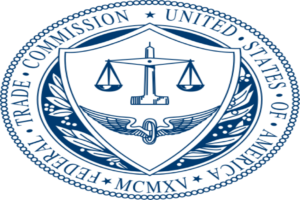
In April 2023, the Federal Trade Commission announced that that it would be banning noncompete agreements in order to promote competition. Although this historic announcement was meant to change the entire landscape of the employment industry within the U.S., the FTC’s push to ban these agreements raised much skepticism from a legal perspective.
The agency failed its first test of pushing its ban through the courts when U.S. District Judge Ada Brown ruled to bar the ban from taking effect. Judge Brown concluded that the FTC did not have the authority to impose such a ban. “The Court concludes that the FTC lacks statutory authority to promulgate the Non-Compete Rule, and that the Rule is arbitrary and capricious. Thus, the FTC’s promulgation of the Rule is an unlawful agency action,” Brown wrote in her order. “(The rule) is hereby SET ASIDE and shall not be enforced or otherwise take effect on September 4, 2024, or thereafter.”
Judge Brown adds on that even if the FTC did have the power to impose a ban on all noncompete agreements, it did not specify what exactly the purpose is behind it. In other words, it did not justify what the ban was at all necessary.“The Commission’s lack of evidence as to why they chose to impose such a sweeping prohibition … instead of targeting specific, harmful non-competes, renders the Rule arbitrary and capricious,” Brown wrote.
The FTC was clearly disappointed with Judge Brown’s conclusion and in a statement to ABC news, announced that they are seriously considering a potential appeal of the decision.
“We are disappointed by Judge Brown’s decision and will keep fighting to stop noncompetes that restrict the economic liberty of hardworking Americans, hamper economic growth, limit innovation, and depress wages,” FTC spokesperson Victoria Graham said.
The FTC has long held that noncompetes hurt employees. “The freedom to change jobs is core to economic liberty and to a competitive, thriving economy,” said FTC Chair Lina Khan in a statement when the proposed rule was first introduced. “Noncompetes block workers from freely switching jobs, depriving them of higher wages and better working conditions, and depriving businesses of a talent pool that they need to build and expand.” Now, the FTC is faced with an even larger obstacle than before with Judge Brown’s ultimate ruling.
The Future of the Noncompete Ban is Unclear
So far, there have been three cases that dealt with the FTC’s ban of noncompete agreements including Judge Brown’s case. One of the cases, taking place in a Florida district court sided with Judge Brown’s ruling while the other one, taking place in a Pennsylvania district court supported the FTC rule. Many anticipate that such an inconsistent ruling on the ban will ultimately lead the issue to the Supreme Court to decide.
However, in order to make its way to the Supreme Court, the FTC’s appeal will need to be heard by the Fifth Circuit, a court notorious for its friendliness to businesses. As a result, it seems more than likely that such a Fifth Circuit ruling will not be in favor of the ban. “Most anticipate that the lower court’s ruling will be upheld by the Fifth Circuit but predicting the outcome in the Third and Eleventh circuits, assuming the [Pennsylvania] and [Florida] cases are appealed, is less predictable. This means we still could see the issue presented to the Supreme Court,” said Amanda Sonneborn, a partner in King & Spalding’s global human capital and compliance practice. ![]()
Jacob Horowitz is a contributing editor at Compliance Chief 360°

